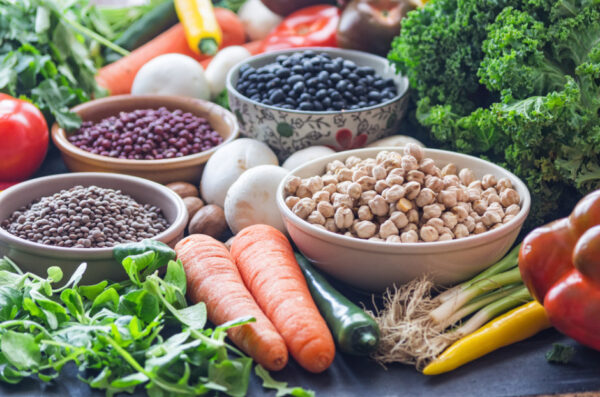There are many things that influence our diet. Some people choose to adopt a specific diet and lifestyle – think vegetarians and vegans who decide to exclude certain food groups from their menu – while in the case of others, the availability of certain foods is the most important factor.
In the light of the ongoing climate catastrophe, though, there is one more thing you should be considering when choosing what to eat: the impact of your diet on the future of the planet. If fighting climate change is among your priorities, keep these aspects in mind when choosing what to put on your plate today.
Meat and dairy
Industrial livestock production for the meat and dairy industry is known to contribute significantly to climate change. Even if you set aside the ethics of eating meat, it is one of the most resource-intensive ways to produce protein: the production of one kilogram (2.2 pounds) of beef, for example, requires almost 15 cubic meters (15,000 liters) of fresh water, a huge quantity of animal feed (usually made from crops that would otherwise be fit for human consumption) – and all this without the fuel burnt to transport the feed to the farm, and the meat to the supermarket and the greenhouse gas emitted by the animals themselves (that is also a huge amount). The numbers are similar for other meats and dairy as well.
For a diet that is good for the environment and will assist you in your fight against climate change, cut back on meat and dairy – or perhaps eliminate it entirely from your diet and go with an entirely plant-based alternative.
The length of the supply chain
Are you familiar with the concept of “food miles”? Well, if your goal is to eat in the “greenest” way possible, you should be. A “food mile” is the distance food is transported from farm to fork, from the place of its production to the place of its consumption. The less the food is transported from the farm to your plate, the lower its impact on the environment.
Surprising as it may sound, buying local food at the farmers market is not the most environmentally-friendly option – it is buying local food at a supermarket. It is not only more economically viable for the farmers and the retailers themselves but also probably much friendlier for your wallet.
Foods that are bad for the planet
We already mentioned the meat and dairy industry that are incredibly harmful to the environment – now it’s time to point a finger on a plant-based food that does the same: palm oil.
Palm oil is used in many areas, from restaurant and fast food fryers to processed foods of all types from popular spreads to cereal, peanut butter, and such. Unfortunately, its production goes hand in hand with deforestation: according to the WWF, the equivalent of 300 football fields (around 1,600 square kilometers, for those not living in the US) of tropical forests are cleared every hour in countries like Malaysia and Indonesia. If deforestation wasn’t enough, clearing these areas of their forest cover releases the carbon stored in the soil, contributing even more to climate change.
In conclusion: if you want your diet to be the best possible diet for the environment, reduce your meat, eggs, and dairy consumption, buy local from your supermarket, and avoid palm oil entirely.

